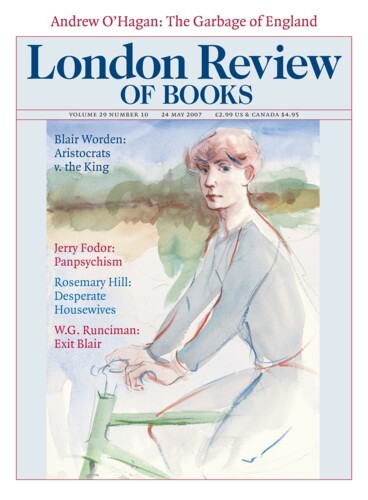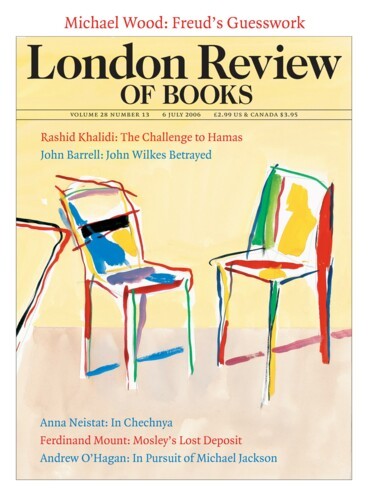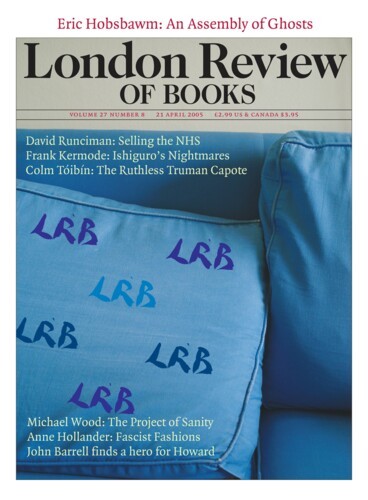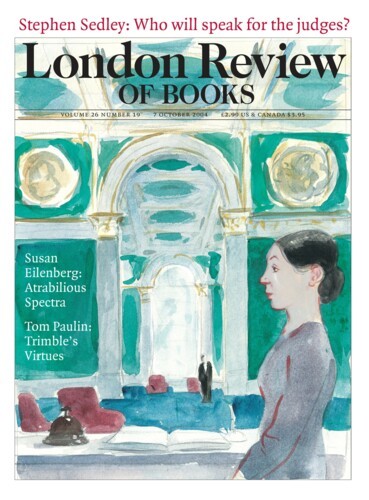Most African herbalists cause no more damage than dispensers of alternative medicines on our high streets. Every now and then, however, a sinister practitioner will advise a very special client that while roots and animal parts are useful, the most potent medicines are made from human blood, liver, spleen and heart. Yes, it is dreadful, he whispers, but there are unscrupulous people about, and I have heard that your rival is in the market for the stuff. What choice do you have? When one big man is persuaded, his peers are immediately alerted. In consequence medicine murders tend to crop up in clusters, the clients typically rich and powerful men. The anti-human sacrifice and trafficking unit of the Uganda police recorded 26 cases in 2008 and 28 in 2009, and a number of suspects were brought to trial. Enter Tim Whewell of the BBC’s Crossing Continents programme.
Adam Kuper
Adam Kuper, whose books include Anthropology and Anthropologists: The British School in the 20th Century and Incest and Influence: The Private Life of Bourgeois England, is a visiting professor at the London School of Economics.
Putting things in boxes: Margaret Mead
Adam Kuper, 24 May 2007
Margaret Mead and her second husband, Reo Fortune, spent nearly two years in the interior of New Guinea between 1931 and 1933. Just 29 years old when they set out, Mead had already published two bestselling books, Coming of Age in Samoa and Growing up in New Guinea. Fortune, a highly competitive, paranoid and occasionally violent New Zealander, had yet to make his name as an anthropologist....
Like Cutting a Cow: ritual killings in southern Africa
Adam Kuper, 6 July 2006
In the chaotic last years of apartheid – the regime crumbling, local authorities in turmoil, violence a constant threat – there were outbreaks of witch-hunting and medicine murder in what was then the northern Transvaal. Hundreds of suspected witches were burnt to death. In 1988, a medicine murder scandal precipitated the fall of the government of the Venda Bantustan. There were...
Clueless: police rituals
Adam Kuper, 21 April 2005
On 21 September 2001, a man walking across Tower Bridge saw what appeared to be a corpse floating in the river. Twenty minutes later, a police launch took the corpse on board and discovered that the head, arms and legs had been severed. The torso was identified as that of an Afro-Caribbean boy of around five years old. The only evidence of identity was a pair of orange shorts labelled...
Off the Verandah: Malinowski’s Papuan peregrinations
Adam Kuper, 7 October 2004
Michael Young’s biography takes Bronislaw Malinowski to the age of 36, when the brilliant Polish anthropologist completed his field study of the Trobriand Islands, married, and prepared to make his career back in Europe. Young is a Melanesian ethnographer himself, and the book comes into its own when Malinowski arrives in Australia, on the eve of the Great War, and begins the...
Pieces about Adam Kuper in the LRB
Happy Bunnies: Cousin Marriage
John Pemble, 25 February 2010
In Britain privilege still means power, but power no longer means class. The British ruling class is long since dead. Its day was over when neoliberal think tanks dethroned liberal-humanist...
No Escape: culture
Bruce Robbins, 1 November 2001
Why are some nations so poor and others so rich? Two Harvard professors recently revived an old-fashioned answer to this unsettling question, and it sits plainly as the title of their book:...
Read anywhere with the London Review of Books app, available now from the App Store for Apple devices, Google Play for Android devices and Amazon for your Kindle Fire.
Sign up to our newsletter
For highlights from the latest issue, our archive and the blog, as well as news, events and exclusive promotions.





